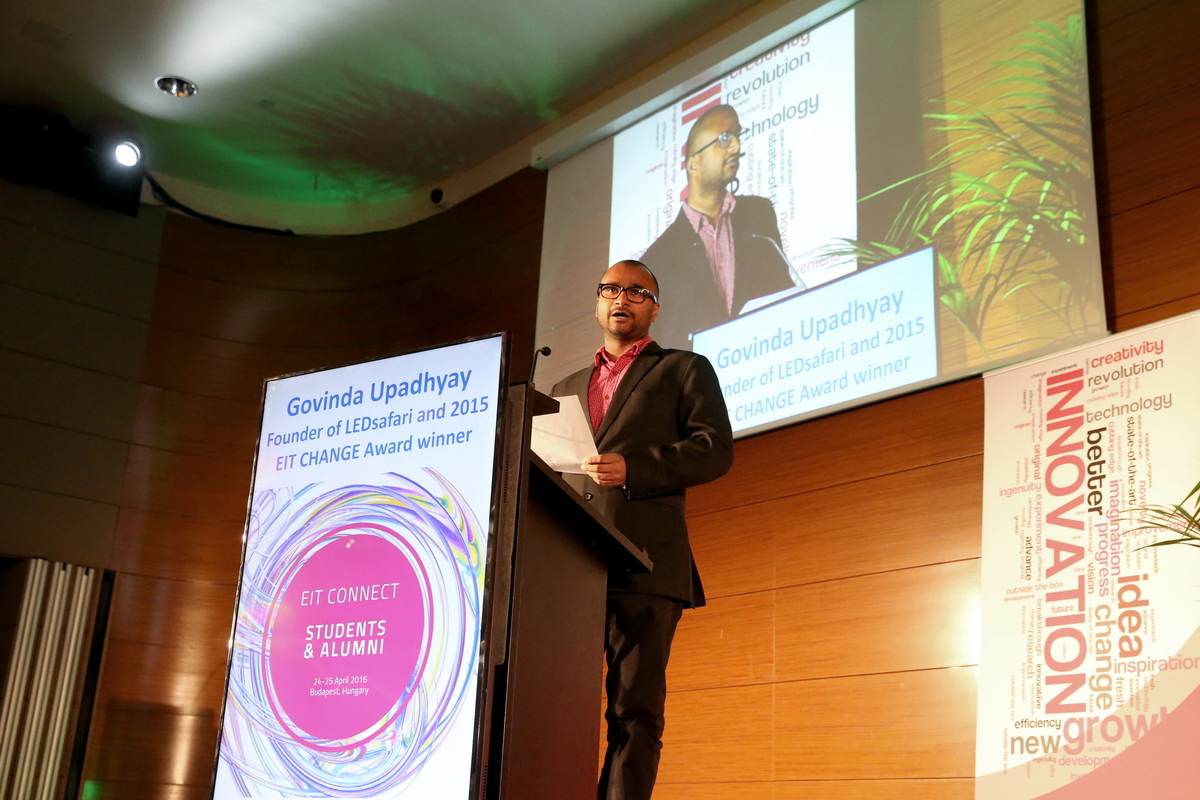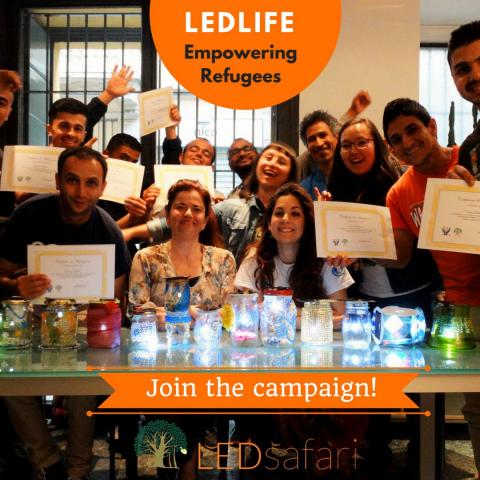"If we want to save the world, it’s not a world leader or a genius who will do it, it’s all of us who have to contribute” – An interview with Govinda Upadhyay

Govinda Upadhyay, winner of the MIT Enterprise Forum's Innovate for Refugees competition, disusses the development of his award winning project - LEDlife
They were looking for solutions for refugees especially in the Middle East. The hashtag was #crackthecrisis and #innovateforrefugees. They received over 1600 entries from all over the world and selected 20 teams that flew to Jordan, which has one of the largest populations of refugees of approximately 1.5 million.
We won the ‘child protection’ category that was sponsored by UNICEF. In refugee camps, safety is one of the biggest challenges, particularly at night, and having access to lighting is crucial.
In April, I decided that I wanted to develop my solar lamp for refugees, which makes sense because many come to Europe with little to nothing, and we wanted them to be able to access activities and education. This competition gave us an opportunity to showcase what we can do, and make contacts that will help us make a difference.
For most of us in Europe lighting is not a real issue, but education is. My LED lamp gives people a life and it allows the story of a person to be told.
First of all, I had not been following very closely what was happening in the Middle East, and didn’t have contacts there, so I decided to start in Europe’s refugee camps. Unfortunately, it was very difficult to find partners on the ground – which is how our model works, because we don’t have the resources to go into the camps ourselves. Existing NGOs and others were already swamped with their own work and couldn’t take on this project.
The second difficulty was that we didn’t have any funds to push the project forward without a partner. We could have done it for a couple of months at most, but that was it.
Now it’s better and I think in the end everything takes time. We now have good contacts with Save the Children, one of the big organisations workings with children across the globe. They were very interested in our project. And then MIT came forward with this competition, offering us similar contacts.
I do think it may attract investors. But the truth is, at this stage I’m not looking for investors, I’m looking for partners and customers, people who will buy the product and give it to the people that need it most. For example, did you know that UNHCR spent half a billion dollars in 2015 just providing lightning in refugee camps – this covered oil, kerosene, and whatever other form they provided. The LEDSafari lamps are easy to build on the spot, and have the added value of creating knowledge. Furthermore, if some part of the lamp stops working, you only need to replace that component. It’s like Legos, you don’t have to replace the whole object, just the defective piece – which saves an enormous amount of money and waste.
The money will go towards scaling-up our project across the Middle East and hiring people there. Whilst 20,000 is not a huge sum of money but it’s definitely not nothing and I want to spend it on our activities with refugees.
Catch up with the latest news from the EIT Community in the Newsroom.
Subscribe to the EIT Newsletter to get the best of the EIT Community's news in your inbox once each month.
Engage with us



 Share this page
Share this page


